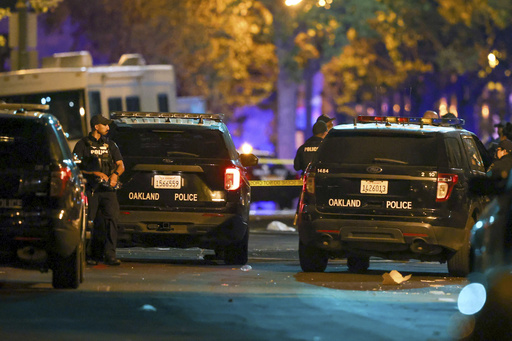California Governor Gavin Newsom and state leaders have decided to backtrack on their initial plan to introduce a crime-focused proposal on the November ballot. Governor Newsom cited a lack of time for final language negotiations before the imminent Wednesday deadline. The proposal had been unveiled on Sunday as an alternative to a more punitive measure that had failed to be resolved through negotiations earlier.
This unexpected change underscores the challenges faced by California Democrats in addressing public concerns about crime without reverting to harsh mass incarceration policies. Governor Newsom, believed to harbor aspirations for a presidential run, departed for Washington D.C. to support President Joe Biden after a shaky debate performance.
The abandoned measure, which would have competed with a stricter proposal supported by district attorneys and business groups, aimed to increase penalties for certain drug offenses and classify repeat shoplifting as a felony, albeit with a narrower scope and less punitive measures compared to the district attorneys’ initiative.
As a result of this development, lawmakers will revert to their initial strategy of advancing a legislative package of bills focused on combating auto theft and professional reseller schemes, to be presented to Governor Newsom by the end of the session in August. The defeat of the Democrats’ ballot measure was celebrated by Republicans and the district attorneys’ coalition, denouncing the proposal as insincere.
The dilemma surrounding crime policies in California has become increasingly complex for Democrats, who have long advocated for progressive measures to reduce incarceration rates and prioritize rehabilitation programs. However, escalating criticism from Republicans and law enforcement, coupled with public frustration over perceived lawlessness in the state, has fueled the debate on crime strategies.
Despite challenges in quantifying the extent of retail crime in California due to limited local data, the visible impact of major store closures and security measures like locking up everyday products hint at a crisis. The decision to pursue an alternative crime-focused ballot measure reflects state leaders’ efforts to navigate a contentious issue that has divided opinions within the party.
In the face of mounting pressure and differing views within Democratic ranks on crime policies, some lawmakers have shown support for a tougher stance amid concerns over rising criminal activities. The battles over crime-related initiatives also coincide with heated reelection campaigns for prominent figures like San Francisco Mayor London Breed and Los Angeles District Attorney George Gascón, both facing criticism regarding their handling of crime and punishment issues.
Amid the ongoing debate on crime strategies and the political ramifications at stake, criminal justice reform groups are throwing their weight behind the legislative package, which they view as a more comprehensive and effective approach in addressing issues such as retail theft and drug abuse. The evolving landscape on crime policies in California underscores the need for effective leadership and a concerted effort to find sustainable solutions to complex societal challenges.




